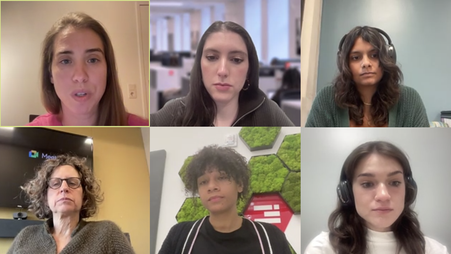There are a multitude of errors in the one paragraph Thomas Friedman dedicated to Edward Snowden in his New York Times column yesterday (Snowden’s leak was the opposite of a “data dump;” he didn’t “flee” to Russia, the U.S. trapped him there; “authentic” whistleblowers are punished all the time), but I want to focus on one misconception that's incredibly important: that Snowden could come back to the U.S. and fairly make the case he is a whistleblower in court. If recent leak cases are any indication, this is outright false.
First, here’s what Friedman wrote:
To make a second impression, Snowden would need to come home, make his case and face his accusers. It would mean risking a lengthy jail term,
but also trusting the fair-mindedness of the American people, who, I believe, will not allow an authentic whistle-blower to be unfairly
punished.
Friedman seems to be parroting the same line used by President Obama in his press conference on the NSA Friday, when he said,“If, in fact, [Snowden] believes that what he did was right, then, like every American citizen, he can come here, appear before the court with a lawyer and make his case.”
No, he can’t. Snowden will not be able to make the case he’d like to make in court because, contrary to common sense, there is no public interest or whistleblower exception under the Espionage Act. In recent cases, prosecutors have convinced courts that the intent of the leaker, the value of leaks to the public, and the lack of harm caused by the leaks are irrelevant, and are therefore inadmissible in court.
This means Snowden would never be ableto tell the jury that his intent was not to help foreign countries or harm the U.S., but to inform the American public about the government’s secret interpretations of laws used to justify spying on millions of citizens without their knowledge.
Snowden would also not be able to explain to a jury that his leaks sparked more than a dozen bills in Congress, and half a dozen lawsuits, all designed to rein in unconstitutional surveillance. He wouldn’t be allowed to explain how his leaks caught an official lying to Congress, or that they’ve led to an unprecedented review of government secrecy.
The jury would also not be able to hear how there’s no demonstrable harm to the United States in releasing this information. And if the prosecution argued that some harm was suffered, Snowden wouldn’t be able to explain that the enormous public benefits of these disclosures far outweighed any perceived harm.
This is why rarely, if ever, whistleblowers go to trial when they’re charged under the Espionage Act, and why the law—a relic from World War I—is so pernicious. John Kiriakou, the former CIA officer to go on-the-record with the media about waterboarding, pled guilty in his case partially because a judge ruled he couldn’t talk about his lack of intent to harm the United States in court.
In the ongoing leak trial of former State Department official Stephen Kim, the judge recently ruled that the prosecution “need not show that the information he allegedly leaked could damage U.S. national security or benefit a foreign power, even potentially.” (emphasis added)
The same scenario just played out in the Bradley Manning trial. His defense wanted to argue Manning intended to inform the public, that the military was afflicted with a deep and unnecessary addiction to overclassification, and that the government’s own internal assessments showed he caused no real damage to U.S. interests. All this information was ruled inadmissible until sentencing.
Every American should be outraged that leakers and whistleblowers are being prosecuted under an espionage statute without ever having to show they meant to harm the U.S. or that any harm actually occurred.
If the same holds true in Snowden’s case, the administration will be able to exclude almost all knowledge beneficial to his case from a jury until he’s already been found guilty of felonies that will have him facing decades, if not life, in jail. Let’s hope if he does come back, that his judge has the good sense to rule differently.




